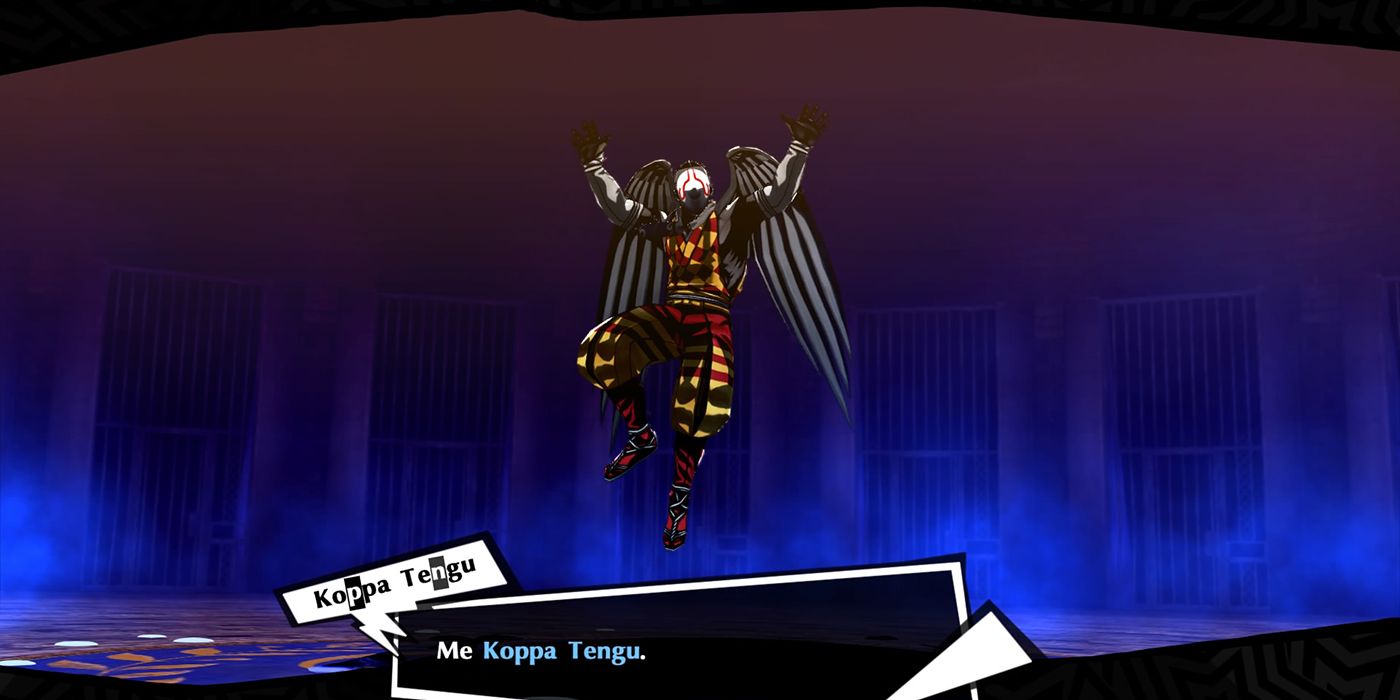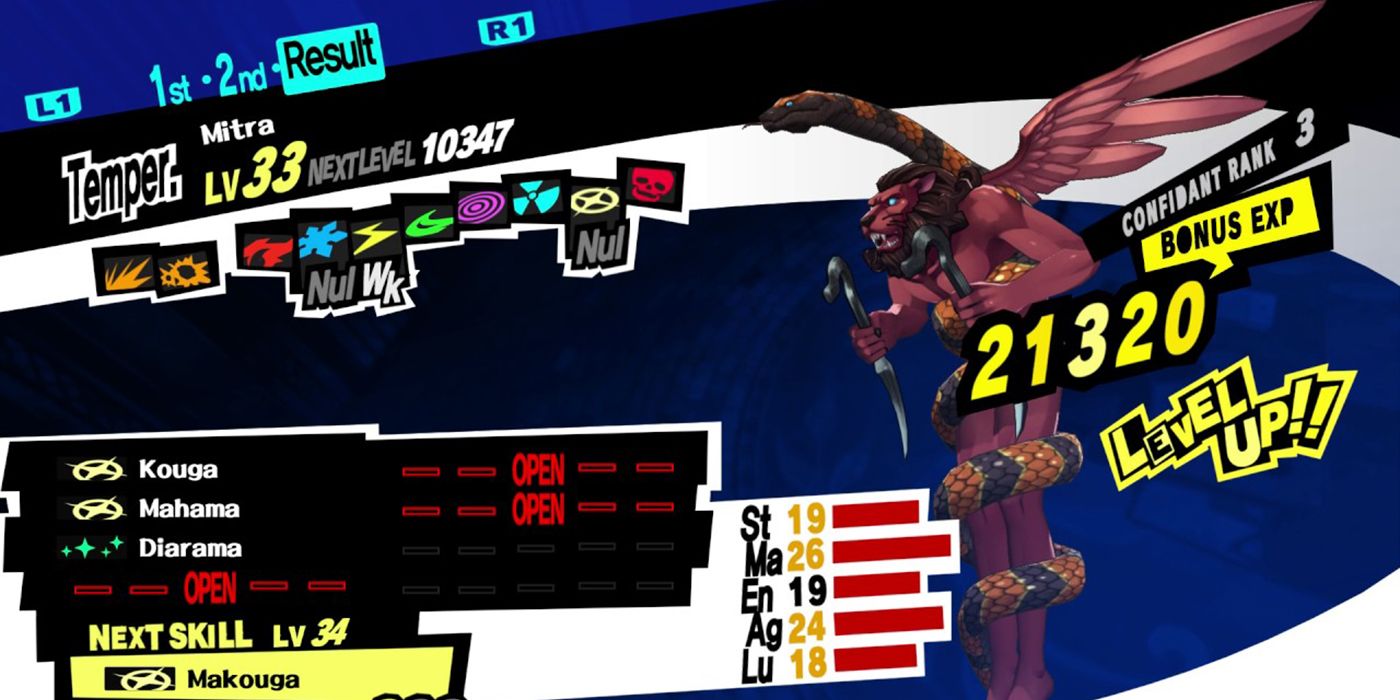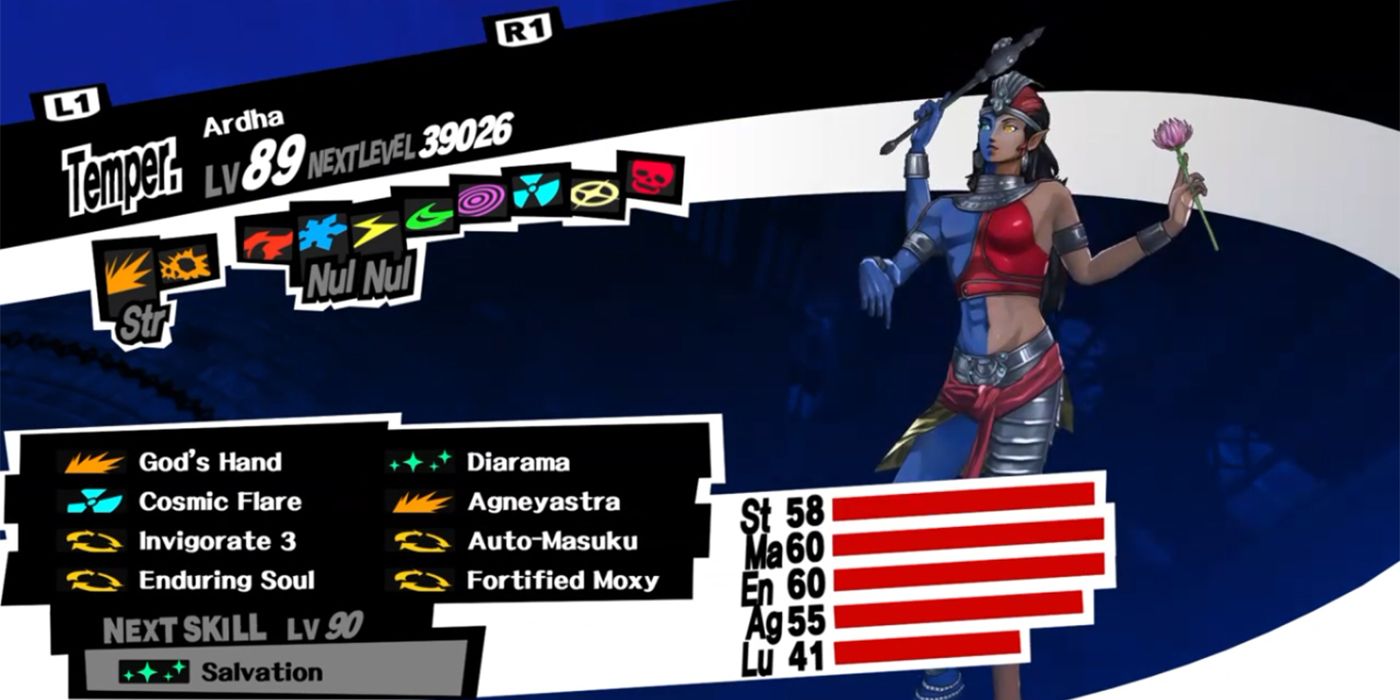
Sadayo Kawakami is one of Persona 5's best-loved confidants, and for good reason. Her story is by turns humorous, heart-felt, and transgressive, and she has some of the most valuable confidant perks in all of Persona 5. The Temperance arcana she represents is all about moderation, the union of opposing concepts, and responsibility. Like most of the Persona 5 confidants, Kawakami possesses the virtues of the arcana she represents, while the situation she is stuck in demonstrates the reversed nature of the tarot.
Namely, Kawakami takes on burdens and trials she is not responsible for, and loses sight of her own well-being in the pursuit of doing more than anyone should reasonably expect of her. As per the Persona series model, Joker, representing the Fool arcana, introduces unforeseen possibilities and potential options to Kawakami that help her break free from the extortionate guilt trip being imposed upon her. Kawakami also represents a meeting of opposites, in that her role as a high school teacher and her job moonlighting as a "maid" constitutes a fraught combination.
RELATED: Persona 5: Spin the Wheel of Fortune Arcana
The defining feature of Temperance arcana personas could be summed up as "jack of all trades, and masters of none." These personas have solid, all-round stats and vary by element on a case to case basis, but none of them have extremely pronounced skills in magic, physical combat, or providing support and inflicting status effects. Those searching for a persona to act as a repository for specific, essential skills, and are unsure which other arcana to use, will find Temperance personas effective and flexible.

Tengu occupy a position in a pantheon of well-known Japanese mythological creatures including Kappas, Kitsune, and Nekomata. What sets them apart from these familiar creatures is that they have been considered both Yokai (demons/supernatural entities), and Kami (gods). This is partially explained by the existence of two general types of tengu: kotengu ("small tengu"), and daitengu ("great tengu"), who is possibly represented by the Hermit Arcana's Kurama Tengu persona. In contrast, Temperance's Koppa Tengu, or "leaf tengu," are the lowest of the low on the kotengu totem pole. As one might expect, daitengu were considered lesser gods, while Koppa Tengu were merely lesser spirits.
Initially portrayed as humans with avian heads and wings in place of arms, the popular conception of Tengu evolved to feature more human characteristics, including both arms and wings, and replacing beaked heads with a very long nose. Interestingly, this modernized depiction of tengus gave way to the differentiation between kotengu (older, bird-like appearance) and daitengu (newer, more human model). Persona 5 does not commit to the full avian head, possibly to differentiate Kappa Tengu from the number of other bird-headed personas in the game. They do give the Koppa Tengu a conical nose extending from a white mask, resembling a bird beak extending creepily from a human head.
In terms of Temperance, tengu had a number of potential origins and conflicting nature. Some tengu were said to originate as wolves who ascended to become yokai. Other stories refer to humans who died bearing grudges or failing to achieve enlightenment, being reduced to lesser tengu. In the end, the general consensus was that tengu could be good or bad, tricksters or killers, and guardians or pillagers, ergo: moderation in all things. Nothing is true. Everything is permitted.

Mitra (not to be confused with Mithras, of the Sun arcana) was a Zoroastrian entity known as a Yazata; a venerated being that is similar to, but lesser than a god. He was one of three Yaztas responsible for judging the souls of the dead, and was ostensibly one of the good guys. He served the supreme deity, Ahura Mazda, by aiding in the destruction of Ahriman's demonic armies. He also had a lion for a head.
Temperance seeks balance (unlike the Justice arcana, which seeks verdicts), and while both roles entail judgment, Mitra sought to assess the holistic value of souls, while his counterparts were meant to measure their verdicts. And, since Atlus seems to enjoy using chimeric entities to represent Temperance's "meeting of opposites," the lion's head seals the deal.
RELATED: The Heroes and Legends of the Strength Arcana

Ardha, a Hindu deity who is half male and half female, is a natural pick for the arch-persona of the Temperance arcana. Ardha's full name is "Ardhanarishvara," which roughly translates to "the god who is half-woman." Depictions of Ardha in Hindu art are so old that it is difficult to tell whether the stories were derived from the depictions, or visa versa. There is also some debate over whether Ardha is an androgynous incarnation of Shiva alone, or a fused representation of Shiva and Parvati.
The lore behind the latter interpretation asserts that Parvati and Shiva's love for each other was so great that they could not stand to exist apart from one another, and fused into a single being. This union is suitable for Temperance, which heralds a meeting of opposites, as Shiva is a god of destruction and Parvati a goddess of love, harmony, and beauty. It is hard to imagine two more disparate figures combining to form a single whole, which would serve as a powerful avatar of moderation.
This also seems to be the interpretation that Atlus choose to follow when designing the persona. The left half of Ardha's persona design is intended to represent Shiva, hence the additional arm, blue skin, and instrument of war, while the right half represents Parvati, with the lotus flower and red garments. This character design would be unconventional, or even provocative by the standards of most JRPGs, but in Persona 5, it doesn't even rank in the top ten strangest persona designs.
As is standard for Temperance personas, Ardha is an extremely solid all-rounder, but fusing them is a non-trivial endeavor, and requires players to have maxed out Kawakami's social link before the persona can be created. Players who are having difficulty with the process would be well-served to consult a fusion guide.
Persona 5 and Persona 5 Royal are available now for PlayStation 4.
MORE: Atlus to Host Persona 5 Strikers Launch Celebration on Twitch

